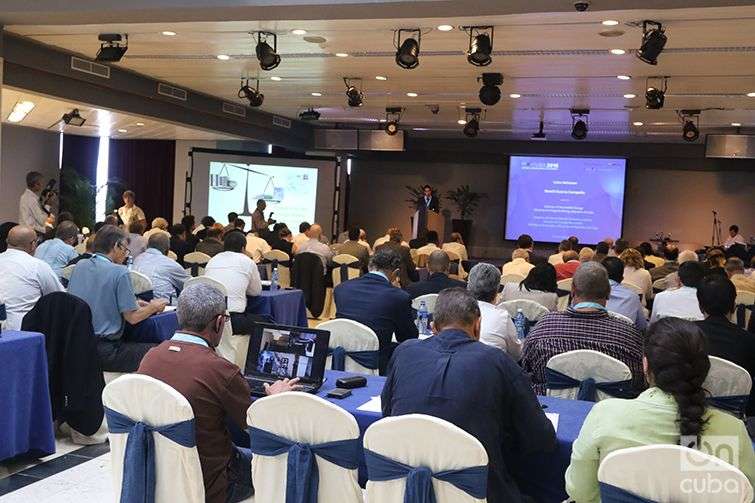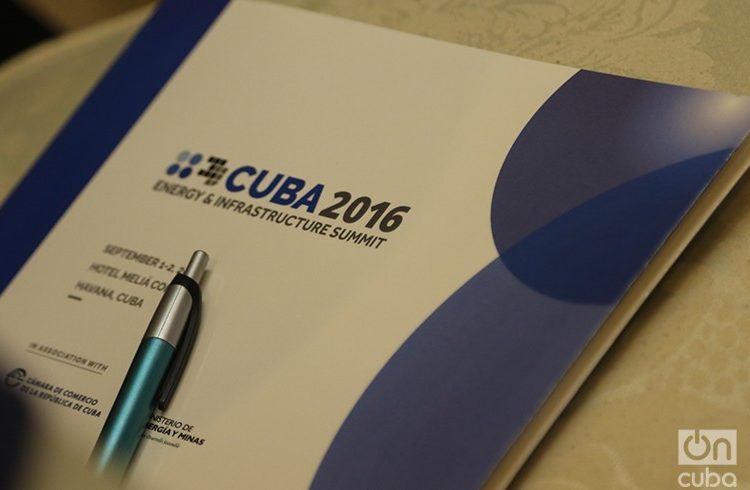Seventy companies from 11 countries met in Havana from September 1 to 2 at the 1st Energy and Infrastructure Summit, a meeting where high-ranking officials from Cuban state entities presented them with business possibilities in terms of energy.
Organized by New Energy Events, IJ Global and the Center for Studies on Renewable Energy Technologies (CETER) of the José Antonio Echeverría University Center (CUJAE), the summit forms part of the policy to increase energy independence, decrease costs in the sphere, guarantee the supply to all sectors of the economy and the population, and reduce the emission of greenhouse effect gases.
According to Rosell Guerra, director of renewable energy of the Ministry of Energy and Mines, in Cuba the use of renewable sources currently does not exceed four percent in the production of electricity. The authorities hope that it will be 24 percent in 2030, and are planning that they cover 60 percent of the increase in consumption forecast for that period.
Guerra affirms that the island has a great potential in that sphere. In the archipelago there is “high solar radiation throughout the year, a growing production of sugarcane, forest biomass and wastes from agricultural harvests, as well as a significant wind power potential, a small hydroelectric potential and the growing use of technology to obtain biogas.
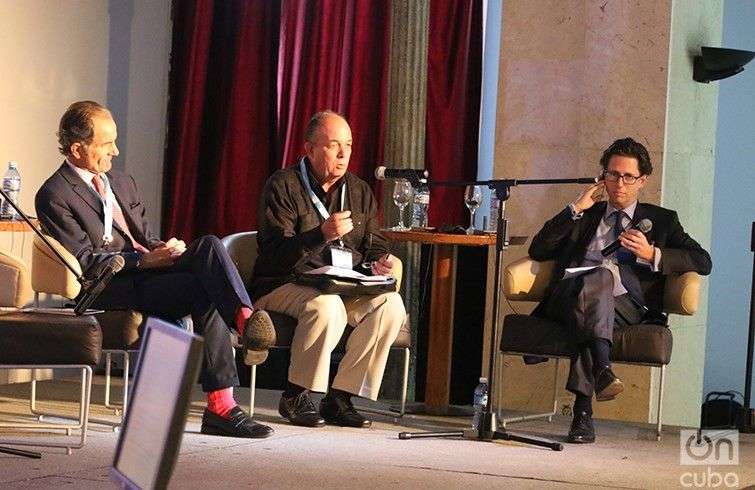
“Our investment program is wide ranging. We must install in the next years more than 2,100 MW with renewable sources technology,” he specified.
These aspirations require great volumes of foreign investment, whose legal framework in Cuba – Law 118 and the Ministry of Foreign Trade and Investments opportunities portfolio – presupposes that “the conditions are created; what we must do is take advantage of them.”
The concrete results of the meeting, recently reported on by the press, include the will of the Spanish Gamesa Company to build seven wind-power parks in the country’s eastern region. It is expected that in the weeks to come there will be news like this one, including other companies and other areas of renewable energy.
Without energy there’s no economy
Conrado Moreno, an expert in wind power, member of the CUJAE’s CETER and general coordinator of the event, knows that for there to be development in a country it must have a solid energy foundation. There cannot be development if it is not accompanied by energy, Moreno said when referring to the projects for the expansion of the hotel industry, construction of highways and infrastructure in general, previewed in the new Cuban economic scenario.
The development plan approved in 2014 established a period until 2030 “although now times are speeding up, the period is trying to be shortened and this is greatly related to foreign investment,” the expert said to OnCuba. “If it intervenes at a faster rate, all this can be installed faster,” he affirms.
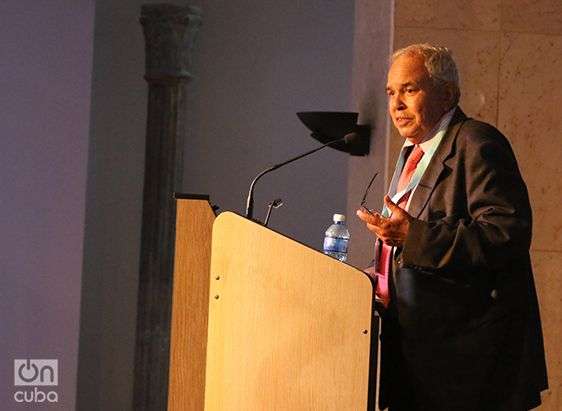
It has been previewed that these meetings will become systematic. “In six months we want to repeat something similar and that those who held talks this time see each other in a short time and that there already be a certain level of agreements and projects.”
Matthew Perks, CEO of New Energy Events, confirmed this to OnCuba, adding that there are plans to retake these talks in six months and continue supporting this new market that is generating so much motivation.
New Energy Events aims to connect countries of Latin America and the Caribbean with potential in renewable sources with persons who have capital, technologies and experts, he said, adding that they combine these actors in major events and, in cases like this one, they see if they can make things happen, projects, funds…..
This is the first event of its type in Cuba. Perks says, why Cuba? Because Cuba is fascinating, because everyone wants to know…and he added that, in addition, there’s a real need; that they know about the energy revolution, of the great progress made in energy efficiency, but now the government is really focusing on developing renewable energies, and there are challenges, it will not be easy, he affirmed, and added that however there is a great opportunity for the right people to come and work with the Cuban government, under its terms, to contribute to diversifying the energy sources, to make this country more resilient and independent.
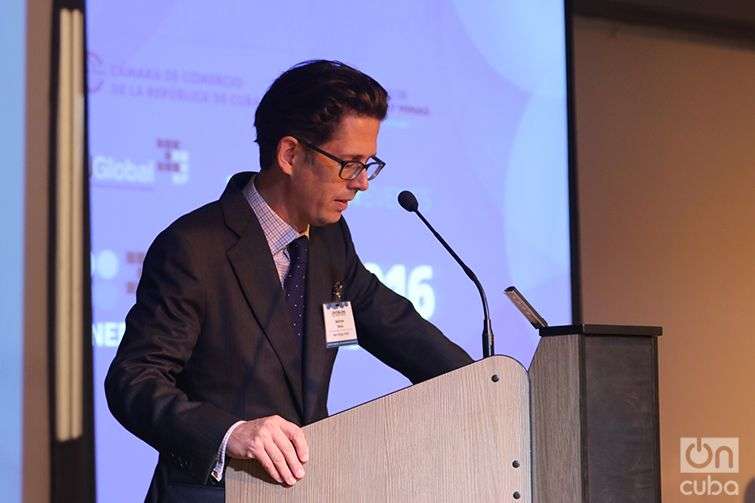
Perks told OnCuba that the Canadian government suggested that they had to come and take a look and hold some talks. He said they did so, they had some meetings and they proposed organizing an event here. He went on to say that the Cuban authorities said: “Yes, we think it’s a good idea, we think you can help us to identify the right investors.”
Moreno pointed out that there were “many participants from the United States, with intentions, but the embargo laws still do not allow having full links.” Even so, he commented, “as they themselves have said, the flexibility must come, and they are getting ahead of this moment when some opportunity is opened. They are geographically closer than the Chinese, than the Spaniards…trade with the United States is the most natural and spontaneous we can have,” he said, referring to the investment potential from that country.
The Engage Cuba Coalition anti-embargo lobby, which participated in early August in a seminar organized by New Energy Events, identifies as the principal complexities for the U.S. companies in Cuba, for the U.S. side, complying with the regimen of regulations and obtaining OFAC & BIS licenses; and for the Cuban side, the first stop for the U.S. companies is the Cuban Embassy in Washington.
“Profits for both parties”
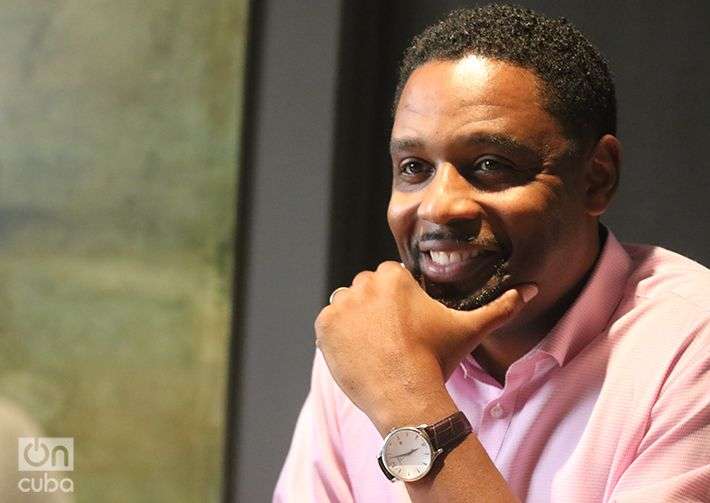
Felix Chevalier, who participated in the Summit, is the son of parents hailing from Guantanamo who was born and grew up in New York, and today resides in Texas, where he advices and legally represents different agencies and companies.
“When President Obama announced he would begin a rapprochement with Cuba, I started getting calls from my clients trying to understand the panorama and to know how they could navigate in that new relation. That’s why I am here,” he told OnCuba.
Chevalier affirms that “everything begins with understanding the process, getting to know who the persons are, their ministries, their industries…to take back with us an idea of what Cuba is seeking and take that information to the interested parties to start talks. That communication is indispensable. It doesn’t matter how good or necessary your company or mine is, if we do not communicate and we like each other we aren’t going to do business. That’s why a creative atmosphere where we can make connections is important.”
The lawyer and adviser affirms that there is “a common interest in doing business with Cuba. Many companies understand that the embargo is obviously preventing it, but they think there are hopes that the talks continue and that that obstacle eventually will disappear. Not all of them see it that way, and it is because of this that the embargo continues in place, but I perceive that that is changing very fast.”
As a U.S.-born citizen of Cuban origin, he admires that “in Cuba the people are very creative. They know how to do so much with so little! That is part of what I think can be very useful: that creativity, that enterprising spirit…. I hope to see it, and it will be good for us and for the Cubans. And when we all benefit from the process, there’s something good there,” he said to OnCuba.
Meanwhile, Steven Harris, legal adviser of Targa Resources, considers it natural that in the energy issue there be an initial stage where the big companies are the ones to approach.
He forecasted that a great deal has to be invested in creating infrastructure, and generally the prices are prohibitive for small businesses; and once the big companies establish the conditions for the commercial flow to take place, it will be much easier for the small enterprises to come under the umbrella of the big ones, added Harris.
